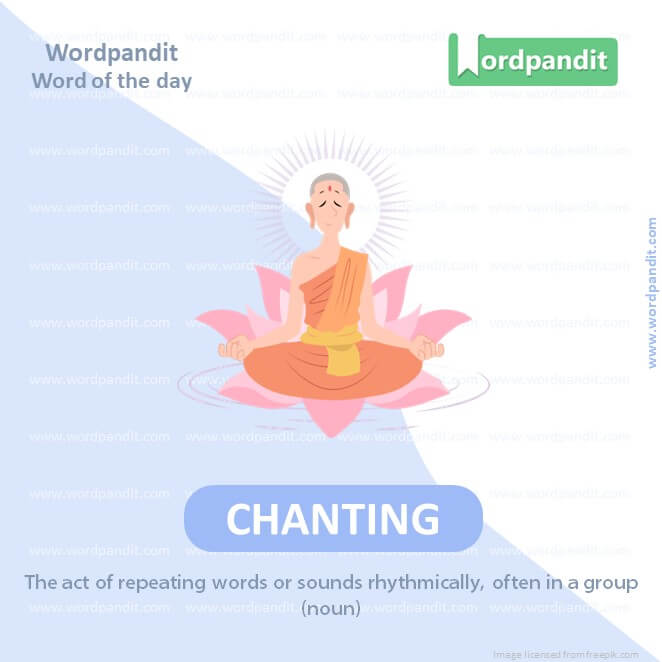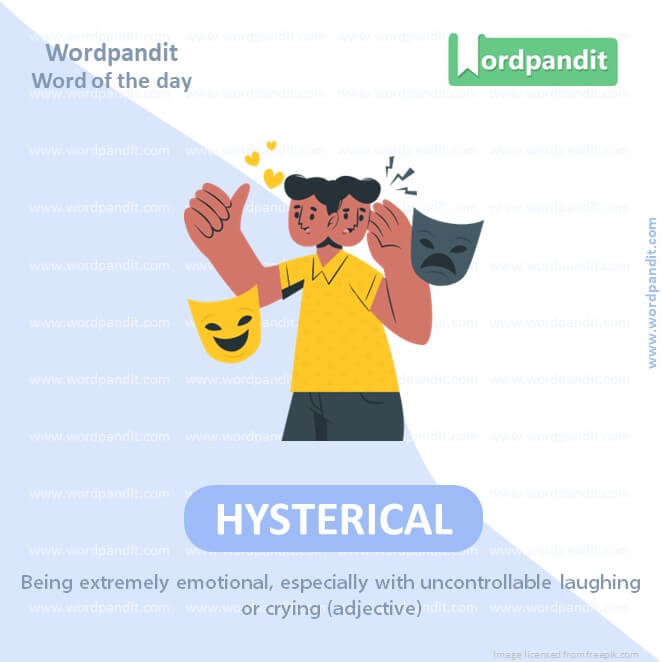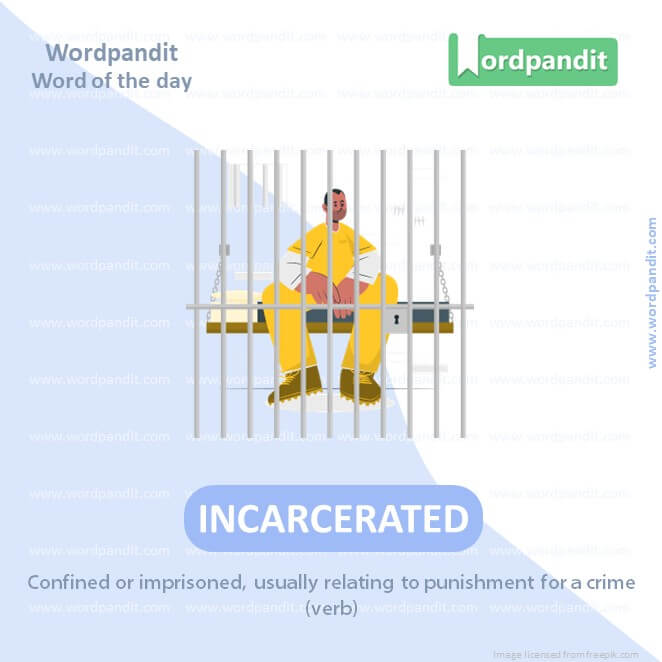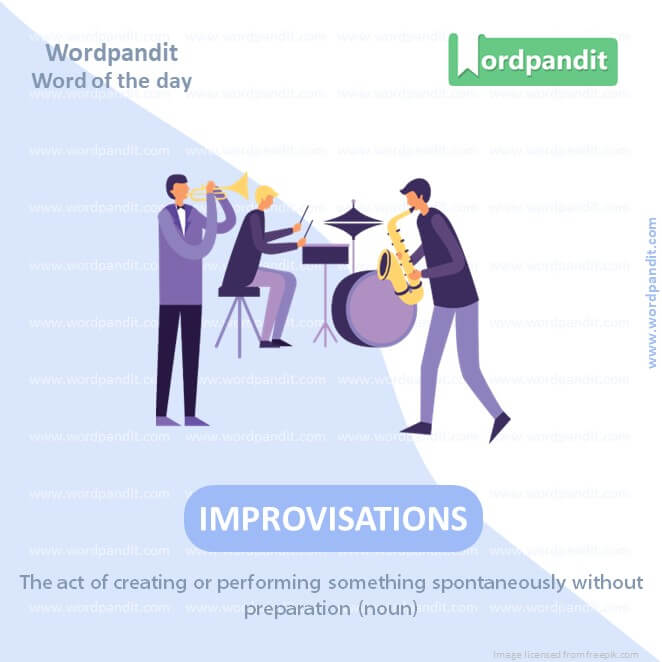Daily Vocabulary Words: Enhance Your Lexicon with Leading Newspapers & Publications
Welcome to the Daily Vocabulary section at Wordpandit!
Our mission is straightforward: to bring you essential vocabulary words featured in top newspapers and publications worldwide. By focusing on words you’ll encounter in renowned sources, we aim to help you enhance your vocabulary effectively and practically.
Our selection includes words from:
– The New York Times
– The Washington Post
– Scientific American
– BBC
– The Guardian
– Psychology Today
– Wall Street Journal
– The Economist
– The Hindu
– The Times of India
– The Economic Times
– Hindustan Times
– Live Mint
– The Indian Express
– And many more.
We are committed to your vocabulary development. Simply visit this section regularly and explore the daily posts. This is your go-to repository for commonly used words, providing significant practical benefits by familiarizing you with vocabulary from the leading publications listed above.
Make it a habit to visit our website daily and expand your lexicon with words from top newspapers and publications.

WORD-1: CHANTING
CONTEXT: Narendra Modi Ji is roaming around the world chanting the slogan of ‘Sabka Sath – Sabka Vikas’ and his State governments are finding excuses and demolishing the houses of Muslims.
SOURCE: The Hindu
EXPLANATORY PARAGRAPH: Think of a time when you and your friends kept saying the same song or rhyme over and over because it was fun. That’s like “chanting.” It’s when people repeat words or sounds together in a rhythm, sometimes during games or at special events.
MEANING: The act of repeating words or sounds rhythmically, often in a group (noun).
PRONUNCIATION: CHAN-ting
SYNONYMS: Singing, reciting, intoning, vocalizing, caroling
USAGE EXAMPLES:
1. The crowd was chanting the team’s name at the football game.
2. During the festival, everyone was chanting together happily.
3. She joined in chanting the slogans at the parade.
4. Children enjoy chanting rhymes during playtime.
WORD-2: CONVENTIONAL
CONTEXT: Samuel Johnson, a profound literary critic and essayist, wrote, “Poverty is a great enemy to human happiness; it certainly destroys liberty, and it makes some virtues impracticable, and others extremely difficult.” In sharp contrast, conventional measures of poverty in terms of income are limited and narrowly focused on scarcity of resources to eke out a bare subsistence. But there is much more to poverty than a bare subsistence, as emphasised by Johnson and others.
SOURCE: The Hindu
EXPLANATORY PARAGRAPH: Conventional is like following the usual rules or traditions that everyone knows about. It’s like wearing school uniforms every day because that’s what’s commonly done at school. It means sticking to what is usual or expected.
MEANING: Following traditional or usual practices (adjective).
PRONUNCIATION: kən-VEN-shuh-nl
SYNONYMS: Traditional, standard, customary, usual, typical, ordinary
USAGE EXAMPLES:
1. The conventional way to celebrate birthdays is with a party.
2. They used conventional methods to cook the meal, just like their parents did.
3. The house was built in a conventional style, following old designs.
4. Conventional schools often have set schedules and subjects.
WORD-3: DEVASTATION
CONTEXT: When I read the Guardian’s report on the 50 women allegedly killed by men in the UK so far this year, I was struck not only by the devastation of lives cut short but by how few of them I had heard about before.
SOURCE: Guardian
EXPLANATORY PARAGRAPH: Think of how your room looks when all your toys are everywhere, and nothing is where it should be—it looks really messy and broken. That’s a bit like “devastation,” but for bigger things, like when a storm makes a big mess of a whole town.
MEANING: Great destruction or damage, leaving things in a very bad state (noun).
PRONUNCIATION: dev-uh-STAY-shun
SYNONYMS: Destruction, ruin, damage, desolation, havoc
USAGE EXAMPLES:
1. The hurricane caused devastation across the island.
2. After the fire, there was nothing but devastation left in the house.
3. The news showed the devastation in the city after the earthquake.
4. People came together to help rebuild after the devastation.

WORD-4: HYSTERICAL
CONTEXT: Women can join the dots between the day-to-day indignities and stresses we face – the wolf whistles, the park flashers, the public transport gropes – and the stuff of nightmares. This is not hysterical or an overreaction.
SOURCE: Guardian
EXPLANATORY PARAGRAPH: You know when something is so funny that you start laughing really hard, almost like you can’t stop? That’s being “hysterical.” It’s when someone can’t control their laughter or gets really upset in a way that seems too much.
MEANING: Being extremely emotional, especially with uncontrollable laughing or crying (adjective).
PRONUNCIATION: his-TEHR-i-kul
SYNONYMS: Uncontrollable, overwrought, frenzied, frantic, delirious
USAGE EXAMPLES:
1. The movie was so funny that we were all hysterical by the end.
2. She became hysterical when she heard the good news.
3. The joke made him laugh in a hysterical manner.
4. His hysterical reaction was unexpected during the speech.
WORD-5: IMPUNITY
CONTEXT: Illegal Israeli acts in the occupied territories are hardening, mostly with complete impunity, into political developments.
SOURCE: Guardian
EXPLANATORY PARAGRAPH: Imagine if you could eat all the candy you wanted and never get a tummy ache or get in trouble. That’s like “impunity,” which means someone can do something wrong but not get punished for it.
MEANING: Exemption from punishment or freedom from the consequences of an action (noun).
PRONUNCIATION: im-PYOO-ni-tee
SYNONYMS: Exemption, immunity, freedom, license, latitude
USAGE EXAMPLES:
1. He stole the cookies with impunity, knowing no one would find out.
2. The corrupt official acted with impunity, as he was never held accountable.
3. There must be no impunity for breaking the school rules.
4. She spoke with impunity, confident that her position protected her.

WORD-6: INCARCERATED
CONTEXT: This includes frank discussions between students and teachers about the challenges the school district faces; moments from a contentious school board meeting; the ritual of a high-school football game; depictions of the region’s deep ties to agriculture and faith; and scenes from the Putnam County criminal justice system, where some parents of students make their living, and others are incarcerated.
SOURCE: Aeon
EXPLANATORY PARAGRAPH: Think about a time when you had a time-out and had to sit quietly in a corner because you didn’t follow the rules. Being “incarcerated” is similar but for adults. It means someone is kept in a place called prison because they broke a big rule.
MEANING: Confined or imprisoned, usually relating to punishment for a crime (verb).
PRONUNCIATION: in-KAHR-suh-ray-ted
SYNONYMS: Imprisoned, confined, detained, jailed, locked up
USAGE EXAMPLES:
1. The person was incarcerated for stealing a car.
2. Many books have been written by writers who were once incarcerated.
3. He has been incarcerated for two years but hopes to be released soon.
4. The incarcerated individuals were given a chance to learn new skills.

WORD-7: ESCHEWS
CONTEXT: In his depiction, the US director Joel Fendelman eschews the sensationalisation that so often consumes coverage of the issues depicted on screen.
SOURCE: Aeon
EXPLANATORY PARAGRAPH: Imagine you do not like broccoli, so when you see it on your plate, you leave it all and don’t eat any. That’s what “eschews” means—to stay away from something because you don’t like it or think it’s not good.
MEANING: Deliberately avoids using or abstaining from something (verb).
PRONUNCIATION: es-CHOOZ
SYNONYMS: Avoid, shun, abstain from, steer clear of, evade
USAGE EXAMPLES:
1. She eschews chocolate because it gives her a headache.
2. He eschews all forms of social media to focus more on his studies.
3. Many writers eschew traditional publishing to go self-published.
4. The politician eschews controversy to maintain a clean image.
WORD-8: DESTIGMATISE
CONTEXT: She considers the project an endeavour to gather these stories before they’re lost to time, as well as to help destigmatise and reclaim the words ‘old’ and ‘lesbian’.
SOURCE: Aeon
EXPLANATORY PARAGRAPH: Sometimes people feel embarrassed about things they shouldn’t, like needing help with reading. To “destigmatise” means to make it okay for everyone to talk about these things without feeling embarrassed.
MEANING: To remove the shame or negativity associated with a condition or situation (verb).
PRONUNCIATION: dee-STIG-muh-tize
SYNONYMS: Normalize, validate, legitimize, demystify, sanitize
USAGE EXAMPLES:
1. There are efforts to destigmatise mental health issues in our community.
2. By talking openly about their problems, they helped to destigmatise the issue.
3. The campaign aims to destigmatise seeking therapy.
4. She wrote an article to destigmatise bankruptcy.
WORD-9: SPANNING
CONTEXT: This short documentary from the US filmmaker Meghan McDonough explores Eversmeyer’s decades-spanning work chronicling the experiences of these women, and pairs intertwining fragments of their stories with lively animations.
SOURCE: Aeon
EXPLANATORY PARAGRAPH: Imagine you’re making a bridge with your blocks from one side of your carpet to the other. “Spanning” is just like that—it means reaching or stretching from one point to another.
MEANING: Extending across or covering a particular distance or time (verb).
PRONUNCIATION: SPAN-ing
SYNONYMS: Extending, covering, bridging, reaching, crossing
USAGE EXAMPLES:
1. The new bridge is spanning the entire river.
2. His career is spanning over three decades.
3. The documentary is spanning the history of ancient civilizations.
4. The network of trails is spanning the entire forest.

WORD-10: IMPROVISATIONS
CONTEXT: As he plays, visuals of the star system and his accompanying improvisations swirl around the screen, making for a transfixing melding of art and science.
SOURCE: Aeon
EXPLANATORY PARAGRAPH: Imagine you’re playing a game but forget some of the toys you need. You might use other things instead to keep playing. That’s like “improvisations,” making up things as you go along because you need to solve a problem or keep having fun.
MEANING: The act of creating or performing something spontaneously without preparation (noun).
PRONUNCIATION: im-prov-i-ZAY-shuns
SYNONYMS: Extemporizations, ad-libs, spontaneity, creativity, invention
USAGE EXAMPLES:
1. The play included several improvisations by the actors.
2. He’s known for his skill in musical improvisations.
3. Improvisations in cooking can lead to delicious new recipes.
4. The team had to rely on improvisations when their plan didn’t work.













